Botanic Gardens: Researchers and residents collaborate on climate
- Published
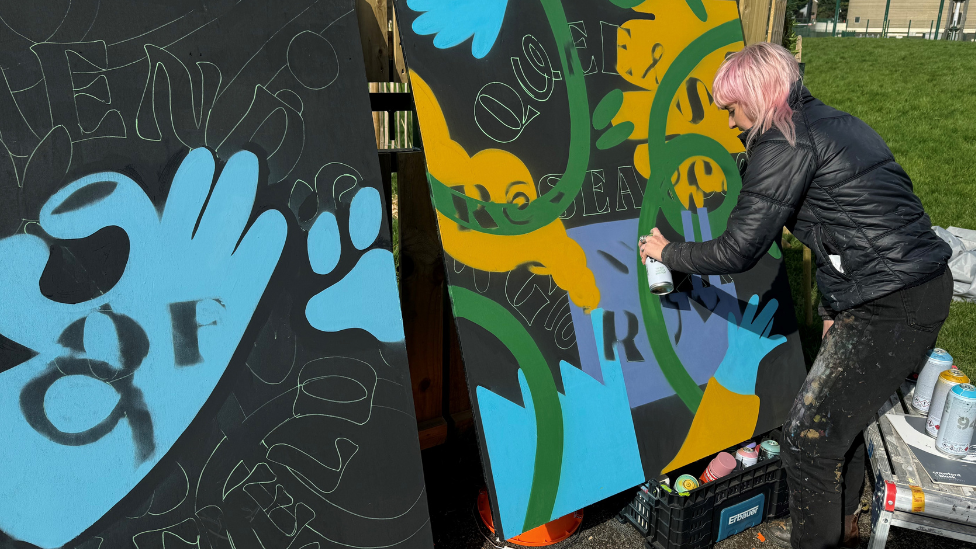
Work is under way to transform a playing field in south Belfast
A playing field in Belfast will soon see kitchen gardeners and climate scientists working together.
Plots have been fenced off at at Lower Botanic Gardens to allow for research, horticulture and community gardens, with a focus on climate initiatives.
It follows a funding award from the Horizon 2020 EU UPSURGE project.
The project sees five European cities test nature-based solutions that focus on air pollution alleviation and climate neutrality.
The primary goal of UPSURGE is to build the EU Regenerative Urban Lighthouse, external - a reference framework demonstrating how tested and verified solutions can be implemented to improve the many problems faced by urban landscapes.
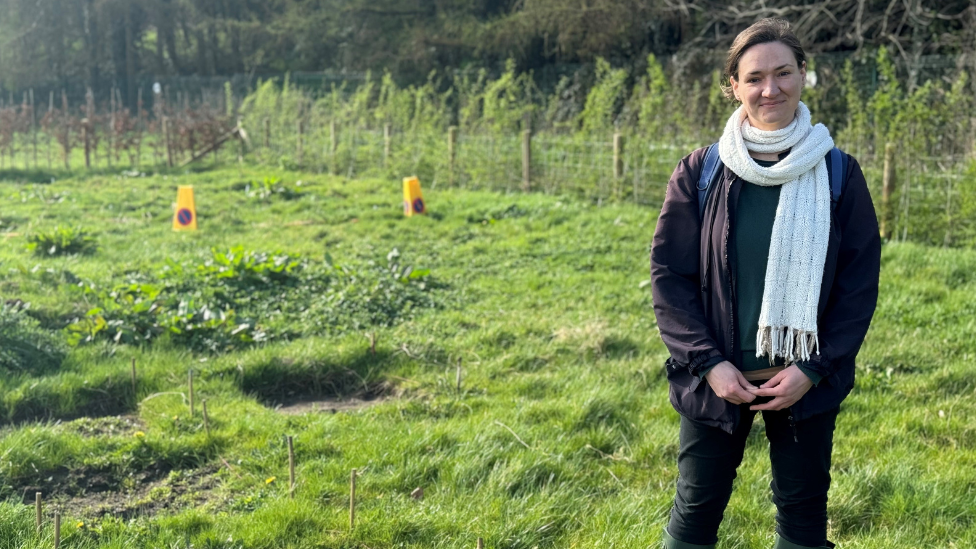
PhD researcher Jennifer Newell is one of the first to avail of the space
The Botanic project is jointly led by researchers from Queen's University Belfast (QUB) and Belfast City Council's climate unit.
A research garden opened last year with PhD researcher Jennifer Newell, who is testing soil contamination and enhancement techniques, becoming one of the first people to use the space.
Her ongoing research into urban agroecology explores the benefits of biochar in reducing soil metal ingestion risks and soil CO2 emissions.
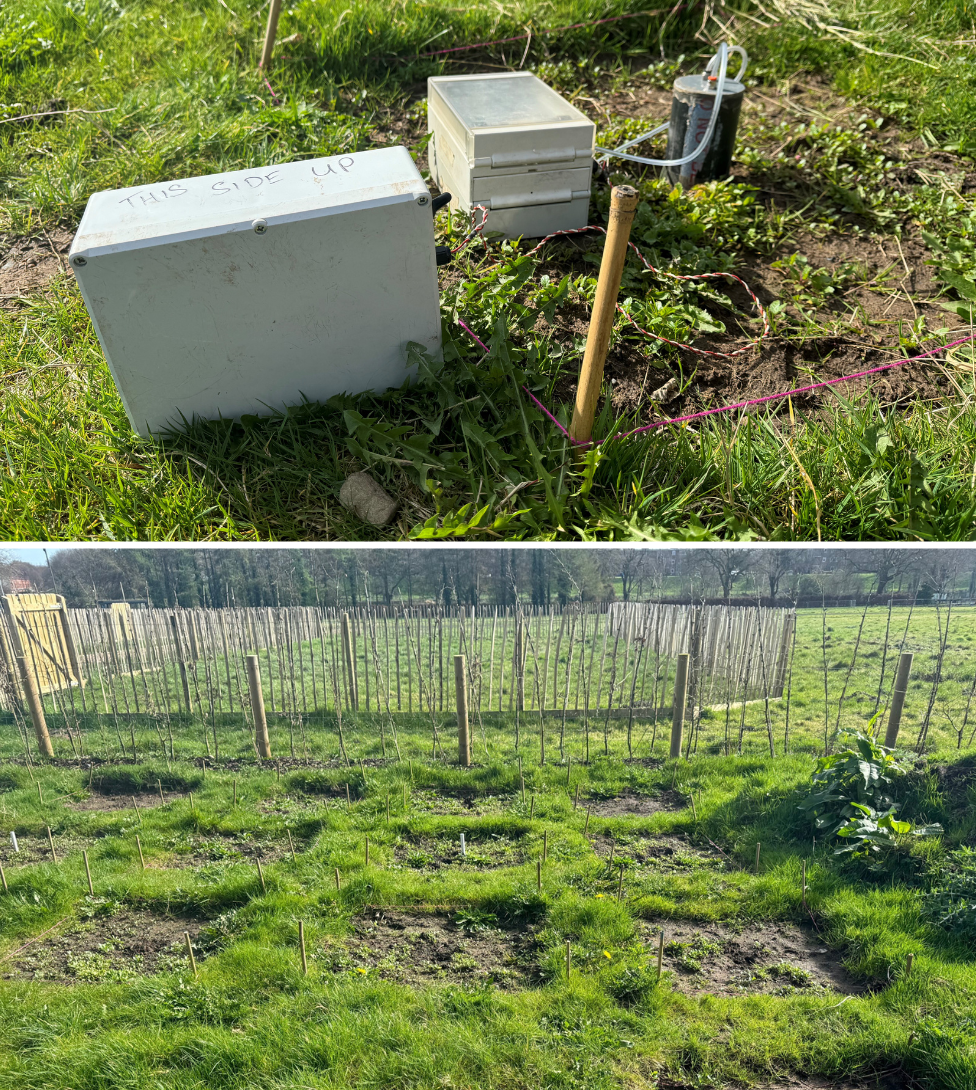
Her work involves monitoring CO2 emissions from different soils and crops
Ms Newell is growing clover and mustard, testing numerous soil blends with the hope of trapping carbon in the ground.
"Carbon sequestration - bringing it out of the atmosphere - is a really big topic at the moment," she said.
"So we're looking at ways of improving that on a nature-based solution site... It's really making the most out of these solutions to improve lots of other processes."
Hidden in plain sight
Prior to the opening of Queen's Physical Education Centre [PEC] in 1971, Botanic Gardens stretched right across to Stranmillis Embankment.
While large amounts of green space remained, even hosting a highly-memorable U2 gig in 1997, external, some felt the playing fields were underutilised and "hidden in plain sight", until now.
During the Covid-19 lockdown, a group of dog walkers regularly used the space, eventually establishing the Friends of the Field community group.
They approached Belfast City Council to propose a garden and were surprised to find the UPSURGE project had successfully bid for the same space.
"We then engaged in a co-design process with workshops," Colin Shaw from Friends of the Field said.
"We were very excited, it was a real collaborative effort to design up a fantastic spec community garden."
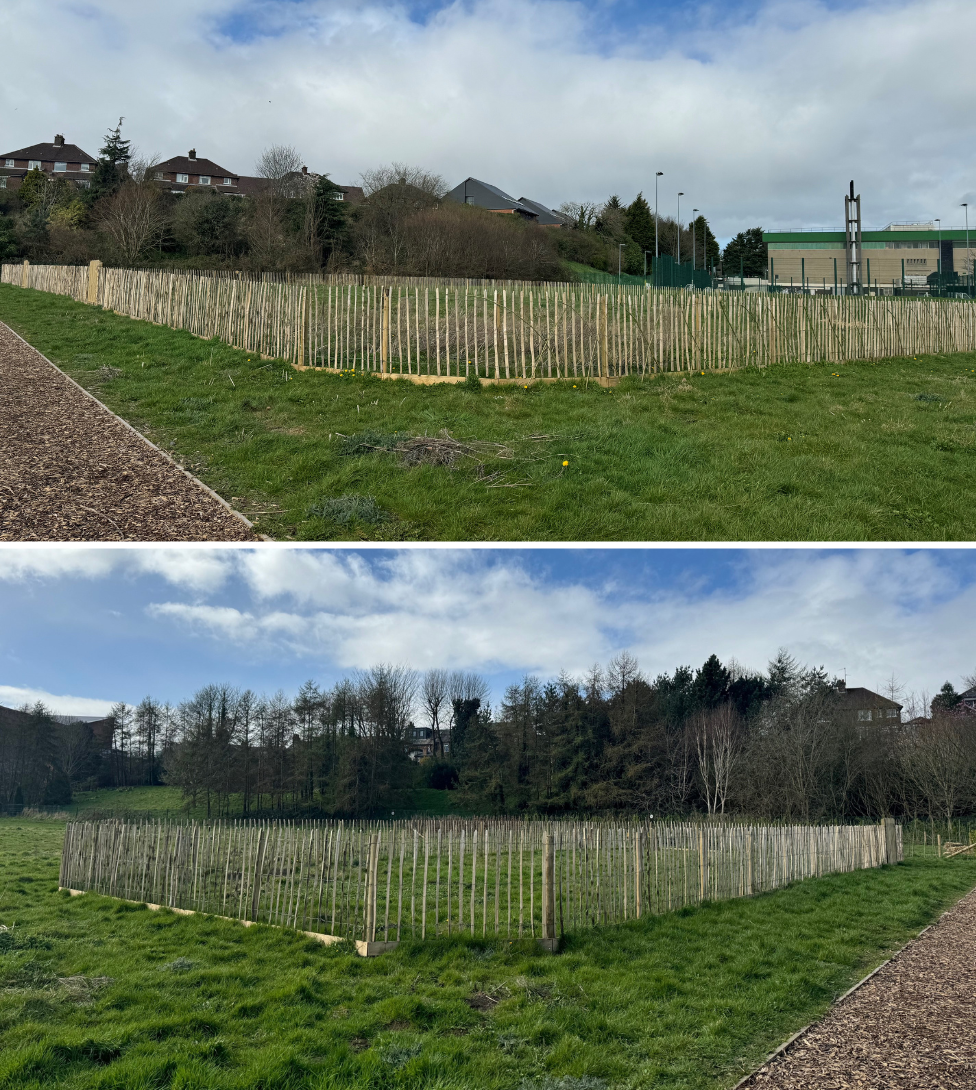
The site will comprise of several dedicated gardens at Lower Botanic Gardens
The group is planning to grow food and create a community kitchen in the space, harnessing solar power for its operation.
They have been supported by GrowNI, a charity that helps develop gardens and initiatives to address food poverty.
"It's going to be absolutely extraordinary. We're not talking a hobbyist weekend garden, it's much bigger than that," Mr Shaw added.
"Our garden will serve as a platform for the public to engage with sustainable food growing, learn about biodiversity, and promote environmental protection."
Belfast City Council has also undertaken significant redevelopment work at the site with new pathways and gateways installed and mature trees ready for planting.
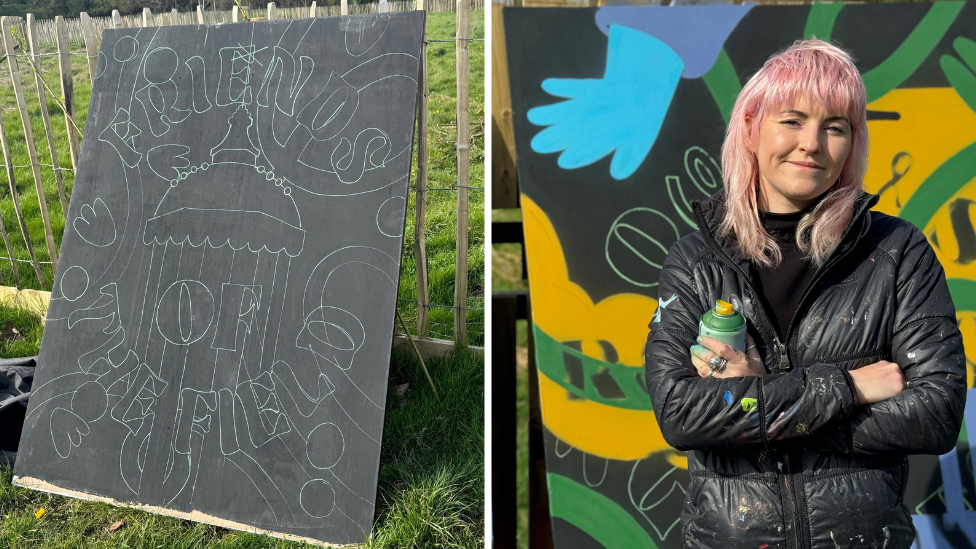
Investment has also been provided by QUB's Green Fund for artwork by Zippy around the community and research gardens
The research project involves many European partners including other universities and municipal authorities in Maribor, Slovenia; Budapest, Hungary; Katowice, Poland and Breda, in the Netherlands.
"UPSURGE is the response to the challenges faced by these five cities who are working together to decrease the impacts of climate change in our urban environments," QUB project lead Prof Jennifer McKinley said.
"Nature-based solutions need to be adaptable to the different types of climates," Prof McKinley added.
"Urban environments that are more cement, you get these heat islands, so having this sort of [green] area within a city helps to cool down residential land around it."
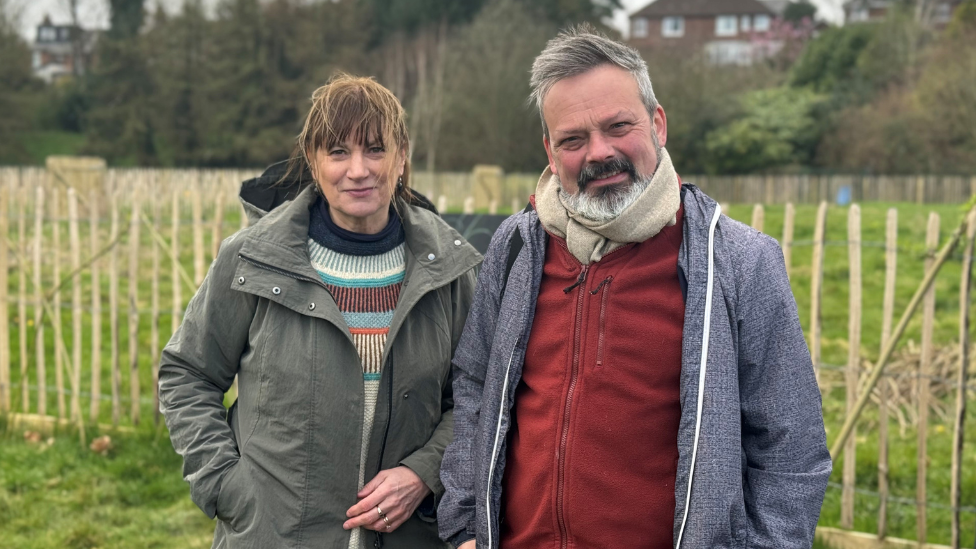
Prof Jennifer McKinley and Colin Shaw are hoping to develop a sustainable project
The project "closes a gap" within the existing knowledge base on nature-based solutions, she explained, with the EU Regenerative Urban Lighthouse acting as a "beacon" for other cities wishing to implement solutions.
UPSURGE extends through to 2025 but Prof McKinley is confident it will remain a sustainable project for south Belfast.
"That's all about co-designing with stakeholders [who have also] bought into it," she added.
Friends of the Field is hosting an open day at Lower Botanic Gardens on the 23 March ahead of the upcoming launch of the project-funded community garden on the site.
- Published12 April 2018
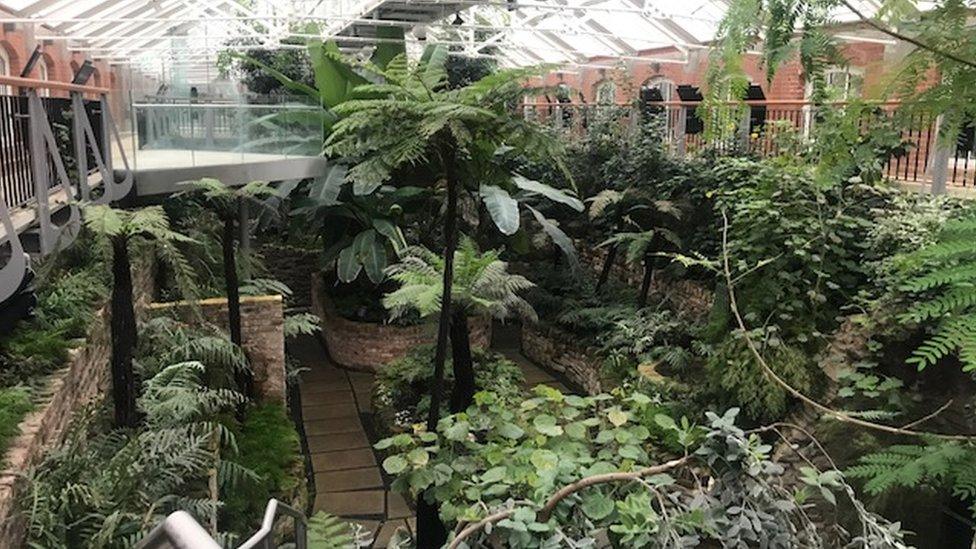
- Published11 December 2023
